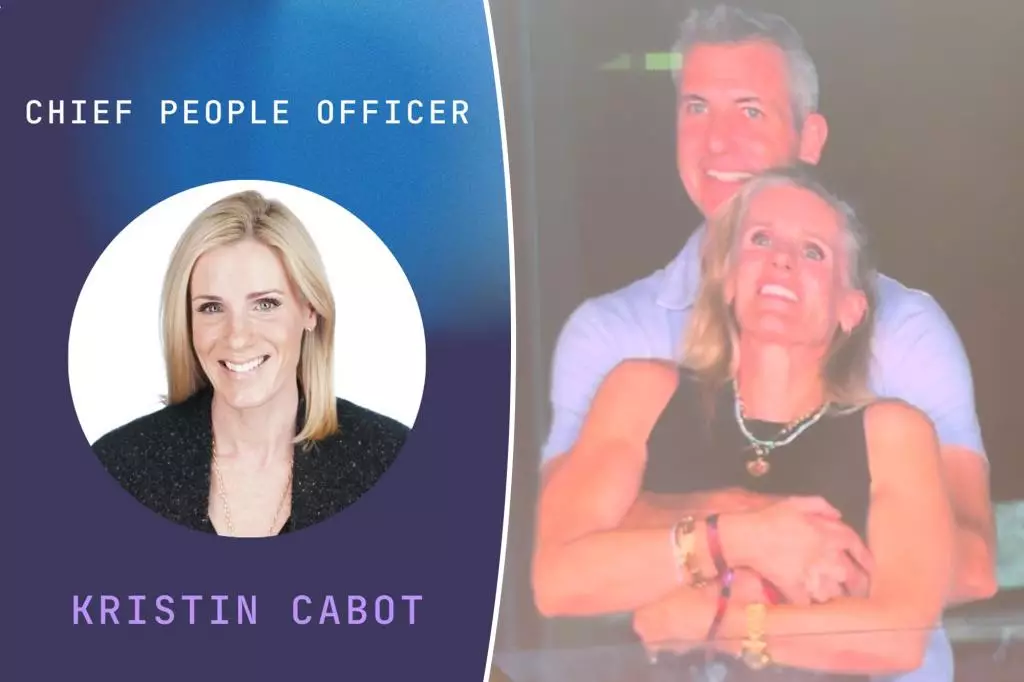In the modern corporate landscape, the image of a charismatic leader who effortlessly wins trust and builds vibrant organizational cultures is often romanticized. Kristin Cabot, a self-proclaimed “fearless change agent” and master at cultivating top talent, epitomized this ideal. Her LinkedIn profile painted her as an inspirational figure who could transform any workplace into a thriving hub of collaboration and innovation. However, beneath this polished facade lies a stark contradiction: her personal actions and the way she presents herself publicly stand in sharp contrast to her actual conduct and corporate reputation.
It is easy to admire someone who claims they lead by example, especially when they win hearts from the CEO level to entry-level employees. Yet, these claims require scrutiny when personal behavior suggests a different narrative. Leading with integrity involves consistency—what one says about their leadership should align with their actions. In Cabot’s case, her display of intimacy with her senior boss at a public event undermines her professional image, raising legitimate questions about boundaries, professionalism, and the integrity of her leadership persona. The sensational viral incident at a Coldplay concert is more than mere awkwardness; it symbolizes a disconnect between the persona she projects and the realities of workplace conduct.
The Glamourization of Power and Its Dark Side
Some leaders cultivate an aura of invincibility, often fueled by their accomplishments and confidence. Cabot’s high-profile claims about how she “wins trust” and “creates award-winning cultures” contribute to a narrative of exceptional influence. Such narratives are persuasive because they suggest a mastery of organizational dynamics, but they also tend to obscure the darker undercurrents of leadership—particularly when the leader’s reputation is built on the promise of inclusivity and respect, yet is contradicted by underlying workplace behaviors.
A troubling dimension arises from past reports about her former employer, Cybereason, where the CEO, Andy Byron, was described as a volatile boss prone to aggressive outbursts and threats. This paints a picture of a leader whose power might be wielded through intimidation rather than inspiration. The juxtaposition of Byron’s aggressive reputation and Cabot’s confident persona as a “trusted advisor” and “change agent” reveals a common but often overlooked truth: charisma and confidence do not automatically equate to ethical leadership or a positive work environment. Power struggles, fear, and intimidation often lurk beneath the surface of corporate success stories.
Public Persona versus Private Reality
The spectacle of Byron and Cabot’s public display of affection—caught on camera and widely circulated—exposes a fundamental inconsistency: the disparity between image and reality. While their on-stage embarrassment and hurried attempts to conceal their intimacy might seem trivial, they are emblematic of broader issues around transparency, professionalism, and personal boundaries in leadership roles.
The incident also became a catalyst for external judgment, drawing attention not just to personal misconduct but to questions about workplace culture and ethics. Byron’s wife’s decision to delete her Facebook account after the viral incident further illustrates the personal toll such public scandals inflict. What’s more, Byron’s own professional history reveals a pattern of dominance and fear—an environment where dissent was likely fraught with peril—casting doubt on claims of fostering genuine trust.
Leadership integrity is not just about inspiring others publicly but also about embodying consistency, fairness, and respect behind closed doors. When the facade cracks—as it did during that concert—a ripple of skepticism gains momentum. Leaders who project charisma but lack genuine ethical foundations risk losing their credibility entirely when their contradictions come to light.
Reflections on Power, Influence, and Authenticity
In examining figures like Kristin Cabot and Andy Byron, it becomes evident that the veneer of leadership often masks uncomfortable truths. Power—and the way it is wielded—can distort perceptions, leading individuals to believe that confidence and charisma justify questionable personal behaviors. Yet authentic leadership requires more than impressive words and the ability to garner loyalty; it demands integrity, respect, and accountability.
Ultimately, the story of Cabot and Byron underscores an enduring lesson: true influence is rooted in authenticity. When public personas are crafted with the sole intention of impressing others, they crumble when faced with reality. Leaders must recognize that their actions define their reputation more than any self-proclaimed influence or reputation. The pursuit of superficial trust and fame often comes at the expense of genuine respect and organizational health.
By critically analyzing this case, we see that the true power of an effective leader lies not in the polished narrative they tell about themselves but in the consistency, humility, and integrity they display—especially when no one is watching.

